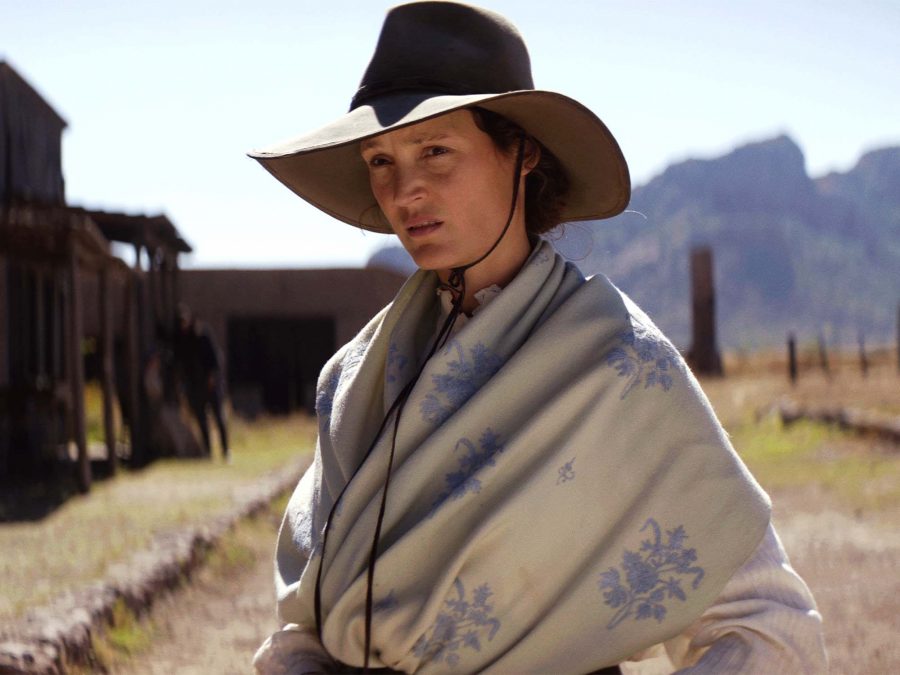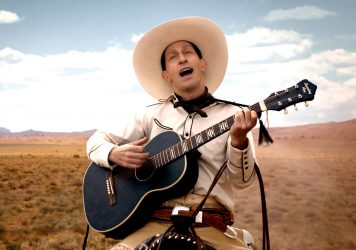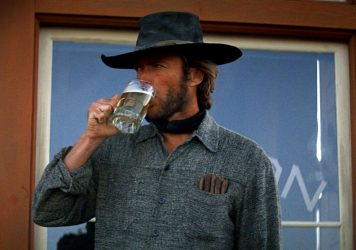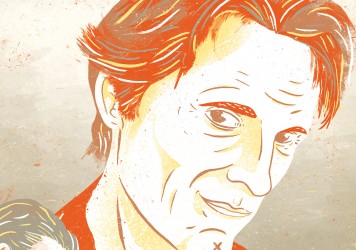Viggo Mortensen's sombre take on the western evokes some classic Clint Eastwood films.
Unlike some of his actor-turned-director peers, Viggo Mortensen doesn’t see filmmaking as a zeitgeist-connected popularity contest. With his wistful second feature, The Dead Don’t Hurt, he mines a seam of timeworn Americana, drawing on the sparsely striking, often deadly landscapes of the old west and a people whose collective moral compass has yet to find its true north.
He plays lightly grizzled Danish immigrant Holger Olsen, who we join at the moment he sets his eyes upon the corpse of his recently departed French-Canadian wife, Vivienne (a typically ethereal Vicky Krieps). Along with a young boy we understand to be his son, Holger dutifully buries his bride while keeping his true emotions hidden under his smockcoat – the actions of a man who has seen much death in his time.
Per the title, Mortensen’s film explores a perpetual sense of earthly suffering that comes from the mere fact of existence, yet that suffering derives as much from a surfeit of love as it does the being the victim of others’ expressions of violence. Flashbacks lap up against one another like gentle waves, as we discover the context of this sour predicament, covering lustful, black-clad sharpshooters, crooked bureaucrats, social diseases and the catastrophic fallout of the American Civil War.
Vivienne is very much the central focus of the film, which is interested in the endurance, integrity and ingenuity she displays while waiting in blind hope for the possibly shortsighted Holger – a paragon of civic virtue – to return home unharmed.

At heart it’s an elegiac and tenderly romantic work, and Mortensen captures both the rapture and the ambivalence of life during that era while not-quite-fitting into a WASP social profile. There are lots of relevant references to classic era westerns that feel apposite here, yet it’s two 1990s Clint Eastwood oaters that mostly come to mind: Unforgiven and The Bridges of Madison County.
Mortensen even seems to be channelling Big Clint in a performance that is largely shorn of outward emotion and instead channels the sense that an explosion of violence is always just around the next corner. The main antagonist is Alfred Jeffries (Garret Dillahunt), a drunken lout with a very itchy trigger-finger whose bloody transgressions are always covered up by his father Weston (Solly McLeod) and moustache-twirling local mayor (Danny Huston).
The extent of their evildoing is painted in an early kangaroo court sequence when the inexorable wheels of manipulated justice lead to a harmless liquor-head being hung for one of Alfred’s shooting sprees. Despite some pacing issues and the fact it leans a little to heavily on extended visual longeurs, this is a fine second feature from Mortensen.
Little White Lies is committed to championing great movies and the talented people who make them.
Published 5 Jun 2024
Mortensen’s Falling was a gentle, sensitive directorial debut.
This is more expansive in its interests. An impressive old school western melodrama.
Mortensen and Krieps are superb in the leads.

Joel and Ethan Coen’s six-part anthology western might just be the crowning achievement of their illustrious career.

This controversial 1973 western ranks among the director’s finest works.

The actor on football, festivals and films that ask lots of questions but don’t give away all the answers.